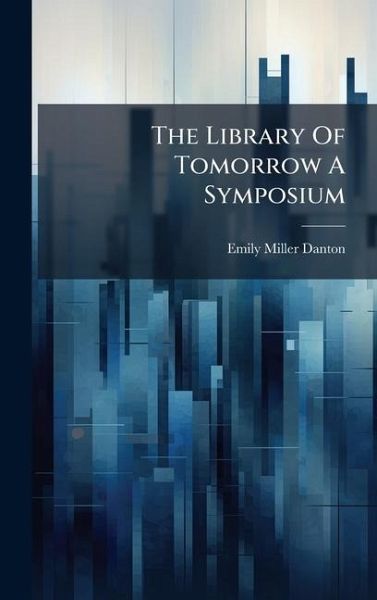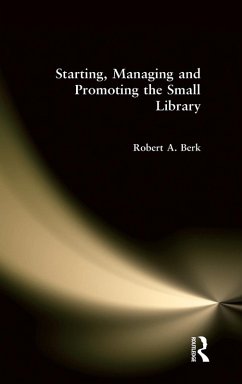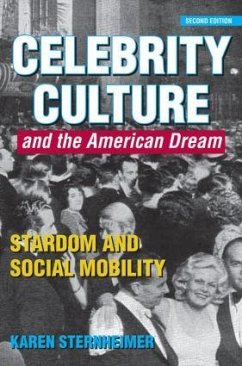
The Library Of Tomorrow A Symposium
Versandkostenfrei!
Versandfertig in über 4 Wochen
30,99 €
inkl. MwSt.
Weitere Ausgaben:

PAYBACK Punkte
15 °P sammeln!
"The Library of Tomorrow: A Symposium," edited by Emily Miller Danton, offers a fascinating glimpse into the thinking of library professionals in the late 1930s. This collection of essays explores forward-thinking concepts related to library administration, automation, and the evolving role of libraries in society. The book captures a pivotal moment when librarians were beginning to grapple with the potential impact of new technologies and changing social dynamics. Readers interested in the history of library science and the ongoing debates surrounding the future of libraries will find this vo...
"The Library of Tomorrow: A Symposium," edited by Emily Miller Danton, offers a fascinating glimpse into the thinking of library professionals in the late 1930s. This collection of essays explores forward-thinking concepts related to library administration, automation, and the evolving role of libraries in society. The book captures a pivotal moment when librarians were beginning to grapple with the potential impact of new technologies and changing social dynamics. Readers interested in the history of library science and the ongoing debates surrounding the future of libraries will find this volume to be of great interest. It provides historical context for understanding current trends in library services and offers insights into the enduring challenges and opportunities faced by libraries in the digital age. This work has been selected by scholars as being culturally important, and is part of the knowledge base of civilization as we know it. This work was reproduced from the original artifact, and remains as true to the original work as possible. Therefore, you will see the original copyright references, library stamps (as most of these works have been housed in our most important libraries around the world), and other notations in the work. This work is in the public domain in the United States of America, and possibly other nations. Within the United States, you may freely copy and distribute this work, as no entity (individual or corporate) has a copyright on the body of the work. As a reproduction of a historical artifact, this work may contain missing or blurred pages, poor pictures, errant marks, etc. Scholars believe, and we concur, that this work is important enough to be preserved, reproduced, and made generally available to the public. We appreciate your support of the preservation process, and thank you for being an important part of keeping this knowledge alive and relevant.












